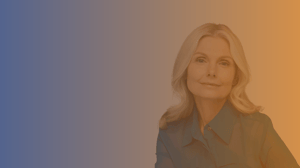We took to the streets of London to ask members of the public if they think the world of work is fair, for everyone. Here is what they had to say.
Tom shared, “No, I, I don't think it's at all fair. I think it's extremely biased in favour of people like me and that doesn't sit very well.”
Val opened up and said, “It, it's hard, you know, we're seeing things now with riots with, you know, Southport and things like that, you know, that's dealing with racism. But if I'm answering your question about work, I only can answer from where I am and the company I am with. They play a lot actually in making sure there's communication. And I think the key to diversity is being transparent, doing things that are, you know, it's all about communication. And I have to say I'm quite blessed where I am.
"They, they do a big part. And I think when we say diversity, didn't I, it's not just that stamp that company does. It's actually, Do actions speak louder than words? And where I am, I have to say they do. And it's not about just doing Pride because a lot of people just think diversity is just about, you know, whether it's the sexuality side of it.
"I think there's more to it. So for me and my experience, I have said they embrace everybody. So, I have to say yes, thumbs up where I am.”
In contrast, Lisa said, “No, definitely isn't. I guess being in London it's probably fairer here than in other places, but I know from experience with close friends for young mums it's particularly difficult still. The working hours is still long, there's no communities to put children in childcare before starting a working day and things like that. So , I think it's particularly hard for them and I've got friends experiencing it now. I've got less experience in terms of other types of backgrounds, but definitely for young mothers it's particularly hard."
Louise said, “I would say - I feel it is. I was going to say, work in an office where, well, when I'm in the office where inclusion means everybody, so, you know, no one's discriminated anymore for a disability, for how they dress, age, she said. So it's great.”
Panilla from the IT industry shared, “Well, I think first of all, we are still fighting a lot of unconscious bias that have been here for centuries, forever I guess. And then we have all these cultural differences that are difficult for people really to understand what that means."
Charles, who works in community development, said, “I think sometimes education plays a big part. Not everybody has got access to that education. And sometimes that education can mean that you'll have very high percentages of individuals holding positions within certain industries because they have come from privileged backgrounds.”
Amy shared her view, “No, I don't think it is fair for everyone because I think I don't know if it ever will be fair because you've always got different generations and that is part of diversity in itself. So you're always battling against different views, which some of those views might be outdated, some modern views, and not everyone's right. So I think there's always going to be a constant battle and you can't put yourself in everyone's shoes. I can't relate to absolutely everyone in this world and I don't expect everyone else to relate to me being a white 30-year-old female in the office. I'd like to think we'd get to a more fair place, but I think there's always going to be a task to try and try and get there.”
Simon, who is a shoemaker, said, “No, it's probably not fair for everyone. I don't know how that can change because it's got to change from the top and downwards.”
What are your thoughts? If you would like to discuss how to make your own workplace fairer for all employees, get in touch and book a one to one with a member of our consulting team or sign up to one of our upcoming events.

